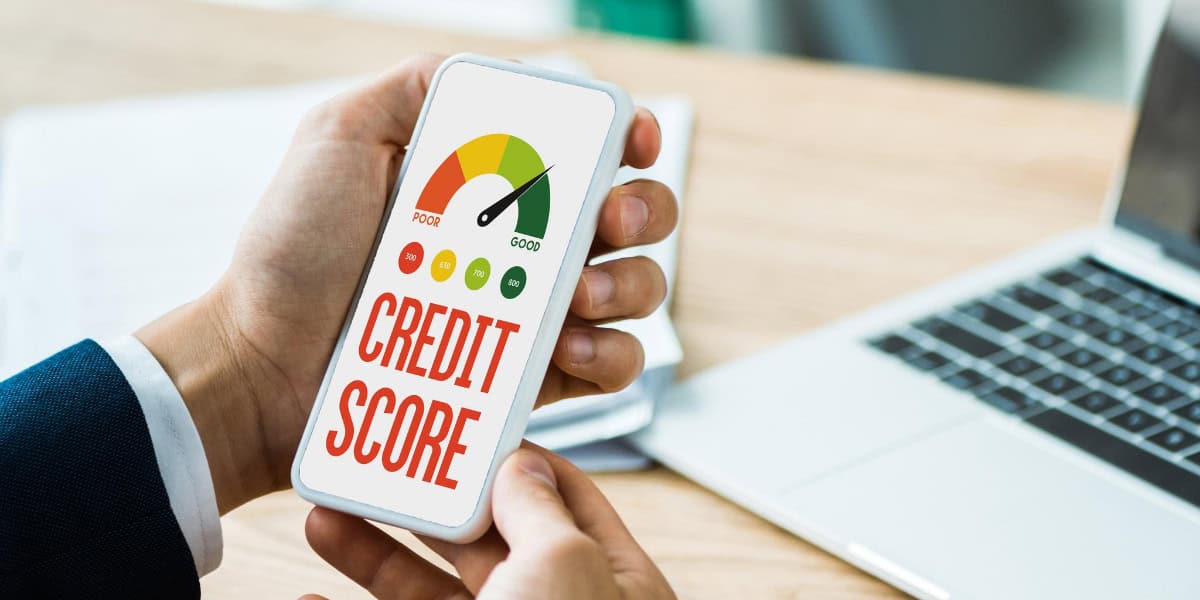Monitoring your credit can feel like a intimidating task, yet it’s essential for your financial health. You might think checking your credit is just for those applying for loans, but staying on top of your credit can actually save you from potential pitfalls down the line. By understanding how to access your credit reports and utilizing monitoring services, you can catch issues before they escalate. But what steps should you take to guarantee that you’re not only informed but also protected from identity theft? Let’s explore the best practices to keep your credit in good standing.
Importance of Credit Monitoring
Credit monitoring is essential for you to catch errors and protect yourself from identity theft, ensuring your credit remains healthy.
By actively monitoring your credit, you can quickly spot changes to your credit report information, allowing for early detection of fraudulent activity. With timely alerts on your credit, you’ll be able to respond swiftly to any suspicious behavior, minimizing potential damage.
Regular checks, including your annual free credit reports, are vital for maintaining accurate report information. This proactive approach not only safeguards against identity theft but also supports better financial decisions.
A positive credit history, bolstered by consistent credit monitoring, can enhance your chances of obtaining loans and mortgages with favorable terms.
Stay vigilant and protect your financial future!
How to Access Free Reports
You can easily access your free annual credit reports from all three major credit bureaus by visiting AnnualCreditReport.com. Federal law allows you to request one free credit report from Equifax, Experian, and TransUnion every 12 months.
With an extended program, you can even check weekly if needed. To verify your identity when you request your free credit reports, you’ll need to provide personal information like your name, address, Social Security number, and date of birth.
Additionally, you may answer questions based on your credit history. If you’re not eligible for a free report, you can purchase one directly from the credit bureaus for a reasonable fee. This way, you can stay on top of your credit health.
Setting Up Monitoring Services
Setting up monitoring services is an essential step in keeping your credit report secure and up to date. You can easily sign up for a free credit monitoring service like Credit Karma or Experian, which provides alerts for key changes in your credit report.
Make sure to enable credit monitoring in your profile settings to receive notifications for any suspicious activity, such as new accounts or inquiries. Regularly review the alerts your service sends you to quickly identify errors.
For a thorough overview of your credit health, consider a paid service that monitors all three major credit bureaus—Equifax, Experian, and TransUnion. Additionally, take advantage of free identity theft monitoring tools to protect your personal information from potential fraud.
Recognizing Identity Theft Signs
Recognizing the signs of identity theft early can save you from significant financial and emotional distress.
Start with regular credit monitoring; check your credit reports for unfamiliar accounts or unauthorized activity.
Keep an eye on your credit score, as a sudden drop could indicate fraud.
Be vigilant for any bills or account statements related to accounts you never opened, which can signal someone’s misusing your personal information.
Watch for alerts from your bank regarding unusual transactions; these notifications can help you catch identity theft before it escalates.
Finally, consider using dark web scanning services to see if your personal information, like Social Security numbers, is being sold online.
Setting up a fraud alert can also provide additional security.
Disputing Credit Report Errors
Disputing errors on your credit report is essential for maintaining a healthy credit score and ensuring your financial future remains secure.
When you spot inaccuracies, take timely action by contacting credit bureaus like Equifax or TransUnion. Gather documentation that supports your claim to strengthen your dispute.
Utilizing free resources, such as Credit Karma, can guide you on how to file disputes and track the status of your claims.
Remember, the Fair Credit Reporting Act requires credit bureaus to investigate your disputes within 30 days, so keeping records of all correspondence during the dispute process is vital.
Best Practices for Credit Health
Monitoring your credit isn’t just about fixing errors; it’s also about adopting best practices that keep your credit health in top shape.
Regularly check your credit report at least once a year from the three major credit bureaus—Equifax, Experian, and TransUnion—using AnnualCreditReport.com. This helps you spot signs of identity theft and dispute inaccuracies.
Set up credit monitoring alerts to receive real-time notifications about changes to your credit history.
Maintain a credit utilization ratio below 30% to positively impact your credit score.
Finally, consider using free identity theft protection services to safeguard your personal information.
Frequently Asked Questions
How Do I Monitor My Credit Score?
To monitor your credit score, start by signing up for free services like Credit Karma, which gives you access to your VantageScore without affecting your credit.
Check your credit reports regularly through AnnualCreditReport.com to spot any inaccuracies.
Set up alerts with monitoring services to stay updated on significant changes.
Finally, track your credit utilization ratio, keeping it below 30% for good credit health.
Being proactive helps you maintain a solid credit score!
How Do I Monitor My Personal Credit Score?
Imagine you’re reviewing your credit score before applying for a loan.
To monitor your personal credit score, start by signing up for a free credit monitoring service that sends you real-time alerts.
Check your credit reports from Equifax, Experian, and TransUnion at least once a year.
Use tools like VantageScore to track your score’s progress, and set up alerts for any significant changes that could indicate potential issues.
How Do I Freeze My Credit on All Three Bureaus?
To freeze your credit with all three bureaus, you need to contact each one separately—Equifax, Experian, and TransUnion.
You can do this online, by phone, or via mail, but online’s the quickest.
When you freeze your credit, you’ll provide personal details and receive a unique PIN for future reference.
Remember to keep that PIN secure.
You can freeze your credit for free, and it usually takes effect immediately.
Is There a Free Credit Monitoring Service?
You’ll be amazed at how many free credit monitoring services are out there!
Services like Credit Karma and Experian let you access your credit score and reports without spending a dime.
By signing up, you’ll receive alerts about changes to your credit report, keeping you in the loop about your credit health.
Plus, you can get a free annual report from each of the three major bureaus.
Just make sure the service is legitimate!
Conclusion
To summarize, monitoring your credit is essential for your financial health.
By accessing free reports, setting up alerts, recognizing identity theft signs, and disputing errors, you’re taking proactive steps to protect yourself.
Keep your credit utilization low, stay informed, and stay vigilant.
Remember, your credit matters—it affects your loans, your insurance, and even your job prospects.
So, stay engaged, stay informed, and stay in control of your credit journey for a brighter financial future.

